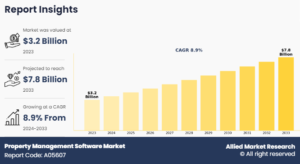Link Farming: What Does It Mean In SEO And Why You Should Avoid It?
Link farming is a black hat SEO technique where several websites agree to link to each other to boost their search engine rankings. The links exchanged in link farming are often low-quality, irrelevant, and have no real value to users. This practice is considered spammy and goes against the guidelines of search engines like Google.
– 8 mins

If you own a website, you know how vital link development is for your SEO efforts. Backlinks are critical signals that search engines use to determine the value of your website. Google assesses a site’s authority by evaluating its backlink profile. Having backlinks indicates to search engines that your content is relevant and deserves to be shared with others. As you gain more backlinks—your authority is presumed to increase.
Link farming was prevalent in the early days of SEO—but Google and other search engines have since evolved to detect and penalize such practices. Websites found engaging in link farming can receive penalties, which can lead to lower rankings, reduced traffic, and other negative consequences.
Let us walk you through what link farming means in SEO, how you can identify link farms and why you should avoid it. But before we delve deeper—let us try to understand what link farming is.
Understanding Link Farming
Having relevant inbound links for website SEO is essential—but it’s not the same as being listed on a link farm. Link farms are simply groups of sites that link to each other without providing any real value.
Link farming’s primary goal is to increase the number of backlinks to a website, which can improve its search engine ranking. However—search engines now detect and penalize these practices as they go against the principles of providing users with high-quality, relevant content.
Websites that engage in link farming may face penalties such as lower search rankings, reduced traffic, and damage to their online reputation.
One example of link farming is when a group of websites agree to link to each other’s pages—even if the links aren’t relevant to their content. Another example is when websites use automated link exchange services or purchase links in bulk to boost their backlink count.
Creating link directories is a common type of link farming. These directories often contain hundreds of links, many of which are irrelevant to the directory’s topic.

How to Identify a Link Farm?
Identifying a link farm can be challenging as they are designed to appear legitimate. Although some link farms can be easily identified, others seem like legitimate websites.
However, some key characteristics will help you identify link farming:
- The website contains many links irrelevant to the website’s content or niche
- The website’s content is low quality or spun and often contains grammatical errors or awkward phrasing
- Content that is highly shallow or poorly written and needs more value to human readers
- The website has a high number of outbound links on every page, often in the form of lists or directories
- Pages consisting solely of lists of links without any accompanying context can be challenging to navigate and understand
- The website has a high volume of ads or pop-ups, which can indicate that the site exists purely for advertising revenue
- The website has a low page rank, indicating that it has yet to be deemed credible by search engines
- The links on the website need to follow a natural linking pattern, often containing exact-match anchor text and linking to irrelevant or low-quality sites.
It’s vital to note that not all websites with many outbound links are link farms. Some legitimate websites, such as directories or resource pages, may contain many outbound links. However, if a website displays several of the above characteristics, it’s likely that it is a link farm and should be avoided.
Well-designed websites have a cohesive feel and a clear theme. It’s easy to understand the website’s purpose and goals—even if it’s not perfectly executed.

Is link farming worth the risk?
Link farming is not worth the risk in SEO. Although it may seem a convenient and fast way to enhance search engine rankings—the adverse outcomes that may arise are far more significant than any possible advantages.
Link farming can harm a website’s search engine ranking and reputation. If caught, a website using link farming may face penalties or even get banned from search engine results pages, leading to a considerable decrease in traffic and revenue.
Additionally—link farming only provides short-term benefits for a website. Search engines regularly update their algorithms to prioritize high-quality and relevant content in search results.
Therefore—websites that rely on link farming may see a short-term improvement in rankings, but this is likely to be temporary, and the website may ultimately lose its ranking position or even be removed from search results entirely.
Here are a few reasons to stay clear of link farming at all costs.
- The quality is not reliable
Never trust the idea that one backlink is equivalent to another. Poor-quality backlinks won’t be rewarded since Google and other search engines are very good at determining the quality of a link’s source.
You must consider high-quality backlinks because they:
- Come from an established, reliable source
- Are organic, real, and natural
- Come from an authority that has something to do with the linked material
- Are logically incorporated into the content of the surrounding area.
Since backlinks from link farms lack all those qualities, they will likely hurt your SEO efforts over time.
- Longevity is not assured
All those backlinks you purchased can vanish because link farms sometimes disappear as fast and abruptly as they appeared.
Even if the link farm is still active, there are no assurances that your links will only be deleted or altered with prior notice.
At the same time:
- Links of low quality from link farms put your site at risk of significant penalties that will be hard to overcome
- You risk receiving harsh punishment
- The penalties are often automatically applied using an algorithm filter.
So—instead of relying on unethical practices like link farming—website owners must create high-quality content that naturally earns backlinks from reputable websites.
Building genuine relationships with other websites in the same niche can also help increase the number of quality backlinks to a website, leading to sustained improvements in search engine rankings.
8 Reasons why you should avoid link farming
Link farming is the practice of sharing links to other websites without providing any substantial content. While this may have been an effective strategy in the past, it is now considered to be a black hat SEO tactic and is highly discouraged.
Here are some reasons why you must not encourage link farming:
1. Penalization by search engines
Search engines like Google employ complex algorithms to determine the relevance and authority of a website. Link farming is seen as an attempt to manipulate these algorithms, and websites that engage in this practice will likely be penalized. This can result in a drop in search engine rankings, reduced website traffic, and revenue loss.
2. Damage to online reputation
Link farming can also damage your online reputation. When search engines identify your website as a link farm, it signals that you are not a legitimate business or website. This can result in a loss of trust from your customers and damage your brand.
3. Violation of Google’s TOS technically
All search engines forbid link farming or artificially boosting a site’s number of links. Participating in link schemes can cause a site’s rating in the SERPs to drop, and their removal might take a long time.
Black-hat SEO tactics like link farming artificially exaggerate the quantum of links pointing to a website to raise its search engine rating. To do this, one might trade links with other websites or establish fictitious websites only for link building. However, Google disapproves of this practice and can lower your website’s position if it finds any indication of link farming.
4. Poor quality backlinks
Link farming involves building a large number of links to a website, often from low-quality or irrelevant sources. These backlinks are of little value to users and may even be considered spam. Search engines are increasingly able to identify poor quality backlinks, and these are unlikely to improve your search engine rankings.
5. Wasted time and resources
Link farming is a time-consuming and resource-intensive process. Building a large number of backlinks requires a significant investment of time and money, and the returns are often poor. Instead of focusing on link farming, it is better to invest in creating high-quality content and building relationships with other reputable websites.
6. Decrease in traffic
Link farming can decrease traffic to your website, as search engines are increasingly able to identify and penalize websites that engage in this practice. Addressing this issue will result in higher revenue and positively affect the long term success of your business.
7. Risk of being blocked
If search engines identify your website as a link farm, you may be blocked from search results altogether. This will devastate your business, and it may be difficult or even impossible to recover.
8. Loss of trust from users
Link farming can lead to a loss of trust from users, as it can be seen as an attempt to deceive them. If a website has a lot of low-quality backlinks, users may be discouraged by the lack of credibility and authority it portrays.
Overall, link farming is a risky and ineffective SEO tactic that should be avoided. Instead, focus on creating high-quality content and building relationships with reputable websites to improve your search engine rankings and online reputation.

What to concentrate on instead of link farming?
Link farming is not sustainable and won’t help your SEO efforts. Start with sound optimization decisions if you want to see long-term success.
The following ways must be considered to achieve long lasting success:
- High-quality content creation—Create original, relevant, and informative content that provides value to your audience.
- On-page optimization—Focus on optimizing your website’s structure, meta tags, and images, and URLs for search engines.
- Social media marketing—Use social media platforms to promote your content, engage with your audience, and build a strong brand presence.
- Influencer marketing—Collaborate with influencers or thought leaders in your industry to increase your brand’s visibility and authority.
- Guest blogging—Contribute to high-quality blogs in your niche to reach a wider audience and establish your expertise.
- Internal linking—Link relevant pages on your website to each other to help search engines understand the structure of your site and improve user navigation.
- User experience—Create a seamless user experience by improving site speed, mobile responsiveness, and navigation to keep visitors engaged and reduce bounce rates.
- Local SEO—To improve your local search rankings, list your business name, address, and phone number (NAP) on your website and create a Google My Business profile. This will assist potential customers in finding you more easily.
- Analytics—Use tools like Google Analytics to track your website’s performance and identify areas for improvement.
Wrapping up
Improving your SEO through link building can be effective in staying on top of emerging trends in marketing, SEO, and evolving consumer needs. But it’s crucial to understand the potential risks involved. Link farming can hurt your SEO if you’re not careful, so be sure to avoid it.
Instead—you must create high-quality, relevant content that attracts natural backlinks and legitimately improves the website’s authority. By avoiding link farming, you can protect your reputation, avoid penalties, and achieve sustainable SEO results.

Surrinder Pandita is a content writer at RankHandy. He has more than 6 years of experience writing for the marketing, HR, and business sectors and aims to provide high-quality content.



